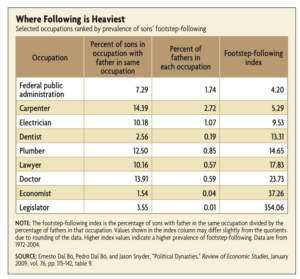After Trump’s second election victory, lots of Americans are talking about emigrating, most commonly to Canada. This happens with every rightwing election win[1], but nothing ever comes of it. With the real prospect of indefinite Trumpist rule, the issues are more serious, but it seems unlikely that much will happen. But why not?
It’s fairly well known that Americans rarely emigrate. There are, for example, only about a million US citizens living in Canada at the moment. Conversely, there are around a million Canadians living in the US. These are surprisingly low numbers for contiguous countries with a common language (except for Quebec) and relatively straightforward[2] paths to migration.
A detailed illustration of a U.S. passport with the text ‘US Paort’ on the cover, lying on top of a Canadian flag background. The Canadian flag’s red and white colors with the maple leaf design are vibrant and easily recognizable behind the passport. The setting is simple, with the passport angled slightly to showcase the modified cover design, creating a contrast between the blue of the passport and the red and white of the flag.
As usual ChatGPT didn’t quite get the text right
More generally, it’s a common rightwing talking point that the USA is the country most commonly named as a desired place to migrate to. What’s less remarked is that Donald Trump’s expressed desire for more migrants from “places like Denmark” reflects underlying reality. Migration from other rich countries to the US is very limited. In 2022, about 300 000 people (excluding tourists) from Europe arrived in the US, and the majority of these were students, most of whom would probably return. And Europe includes a lot of poor countries.
There’s a lot more migration between other rich countries, including between other Anglospheric countries. For example, although Canada has about a 10th of the population of the US, there are about half as many Canadians in Australia (50 000) as Americans (100 000).
The conclusion I draw is that the US is very different from other, superficially similar countries, I’ve visited the US on lots of occasions and had a couple of extended stays totalling two years. But it still seems a very foreign place to me, much more so than New Zealand or the UK, where I’ve been less frequently. And I imagine the same is true, in reverse, for Americans abroad.
Looking at the recent election results, they are in part a reflection of global trends (anti-incumbent, anti-migrant etc). But the vote for Trump was substantially higher than for most of the far-right policies in other countries. I think (hope) that this reflects some specifically American factors.
The option of moving to Canada is, for most Americans, an illusion. They will have to sort out their problems at home, as best they can.
fn1. In the event of a Democratic victory, there aren’t a lot of options for rightwingers, even ignoring practical difficulties. Lots of them have nice things to say about Hungary, but I think only Rod Dreher has moved there. Same in spades for Russia.
fn2. Migration is never easy. But, excluding moves within the EU, Canada-US migration seems to be about as straightforward as anywhere. CUSMA (formerly NAFTA) makes it relatively easy to get work permits, and thereby make the contacts needed for employer sponsorship.


